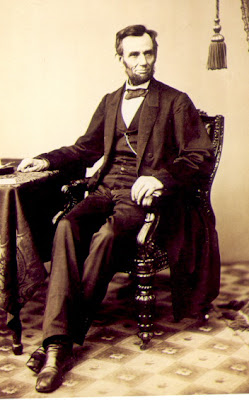 Did you know that Economists hate Christmas? Okay not really, but it does frustrate them. Want to know why? It's not because we get left out at the company Christmas party, although we usually do...... Unless you want to talk about efficient resource allocation at a Christmas party. This would be popular at some Christmas parties, like an economic department Christmas party at a University. However, as hard as it is to believe this, most people don't want to talk about efficient resource allocation at Christmas parties. Or on blogs for that matter - but since you've already had your Christmas party, and now you're bored with nothing better to do so you're still reading this blog, we'll explain.
Did you know that Economists hate Christmas? Okay not really, but it does frustrate them. Want to know why? It's not because we get left out at the company Christmas party, although we usually do...... Unless you want to talk about efficient resource allocation at a Christmas party. This would be popular at some Christmas parties, like an economic department Christmas party at a University. However, as hard as it is to believe this, most people don't want to talk about efficient resource allocation at Christmas parties. Or on blogs for that matter - but since you've already had your Christmas party, and now you're bored with nothing better to do so you're still reading this blog, we'll explain.It's all about efficiency. Economists love efficiency. If you have two resources, labor and capital, you want both to be utilized efficiently while making your product. Suppose you have 10 machines and each requires one person to operate. If you only have one person the process is inefficient. If you have 10 people and only one machine it's also inefficient.
Now let's suppose Joe Shareholder wanted to get a big screen TV for his living room, but not any big screen TV, he wants a Dynex 40" 1080 LCD HDTV listed at $499 on Best Buy online because he knows that LG actually makes this brand so it should be a great product for less money. Okay, suppose Joe's brother Moe gets Joe a Samsung brand television for $200 more? Sure, it's a great TV also, but does Joe derive an extra $200 worth of pleasure from watching this more expensive TV? If not then there's $200 worth of inefficiencies in this gift. What if Joe gets a Christmas sweater with actual reindeer antlers on it? While Joe admits this would be a sweet Christmas gift, he might only wear it once/twice per year to Christmas parties where he will try to corner others to tell then why this sweater was an inefficient gift? He might derive only partial pleasure from this gift whereas a Dynex TV would offer full pleasure.
You see, there are too many inefficiencies in Christmas to fully satisfy efficiency-loving economists. It's a problem. Just give cash then? That's too boring. Give unnecessary gifts? That's too inefficient. So what does this mean for Joe? Joe wants the Dynex TV so JoAnn can come over and watch movies on his big screen TV. Not any movies, but scary movies where he could "calm her nerves" by placing his arm around her and holding her hand to offer help and support in this season of giving. (Even if it is after a Christmas party in which she talked with others about something other than efficient resource allocation, who also don't have reindeer antlers on their Christmas sweaters) Joe understands that not everyone will give each other Dynex TV's, however, so he came up with the perfect idea: A subscription to the JoeShareholder newsletter. Oh wait, JoeShareholder doesn't have a newsletter. All you have to do is give this blog to your friends. There you have it. We've satisfied economists everywhere, and you've satisfied your needs for Christmas gifts. Efficiency = Joe Shareholder.





 Okay everybody, so maybe my last stock pick (
Okay everybody, so maybe my last stock pick (
















